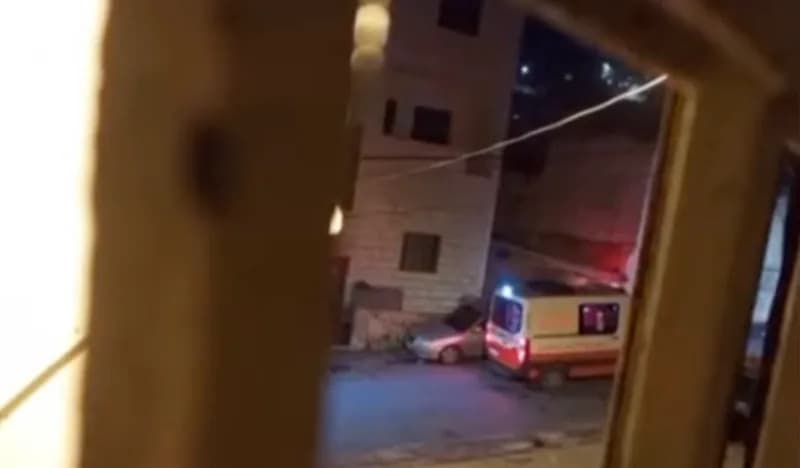Allegations of abuse: Lawyers say dozens of Palestinians are being held indefinitely in Rakevet, an underground wing of Ramla (Nitzan) prison, where detainees report beatings, starvation and denial of medical care. Reported injuries: Testimonies include broken bones, forced thumb-breaking and bodies returned under the ceasefire showing signs of torture and mutilation. Claims and response: Human rights groups call the treatment systematic; Israeli authorities deny the accusations. Political context: The disclosures come as harsher penal measures, including a death-penalty bill, advance in the Knesset.
New Details of Alleged Brutal Treatment of Palestinian Detainees in Underground Israeli Facility

Allegations of Severe Abuse at Rakevet, an Underground Wing of Ramla (Nitzan) Prison
Dozens of Palestinians are reportedly being held indefinitely in Rakevet, a subterranean section of the Ramla (Nitzan) prison complex in central Israel, where lawyers and rights groups say detainees have been denied sunlight, medical care and subjected to physical abuse. The allegations have emerged alongside wider reports of mistreatment linked to Israel’s ongoing campaign in Gaza.
Lawyers’ Accounts and Testimonies
Attorneys representing people detained at Rakevet say their clients have been beaten, starved and refused urgent medical attention despite serious injuries. "When the prisoners arrive for the interview [with their lawyer], their faces show what they’ve endured," lawyer Nadia Daqqa told Al Jazeera. She added that interviews are tightly controlled: "Particularly in this prison, prisoners are afraid to talk. The [interview] room is one square metre and the guards refuse to leave."
One detainee, identified by initials YH, reportedly arrived with a broken jaw, shoulder and ribs and received no medical treatment. Another, identified as KHD in legal records, said guards punish detainees "by breaking their thumbs."
Context and Wider Allegations
Human rights organisations and legal groups say these accounts are part of a broader pattern of alleged abuse across Israeli detention facilities. According to Palestinian prisoners’ rights group Addameer, more than 9,200 Palestinians are currently held in Israeli prisons, many under administrative detention — meaning they are held without charge or trial.
Many detainees from Gaza have reportedly been held at a military detention site called Sde Teiman, where allegations since October 2023 include killings, torture and sexual violence. Bodies returned under the recent ceasefire were said by some witnesses and groups to show signs of torture, mutilation and execution, with some returned with ropes tied around their necks.
Responses from Authorities and Rights Groups
Israeli authorities have denied allegations of abuse. Israeli and international human rights organisations — including the Public Committee Against Torture in Israel (PCATI) and Addameer — have documented what they describe as widespread mistreatment, citing physical beatings, sexual violence, harassment and threats as evidence of systemic problems within detention facilities.
PCATI said in June that "human rights organizations documented widespread abuses, including physical beatings, sexual violence, harassment, and threats — pointing to systemic and deliberate mistreatment." Addameer has similarly condemned alleged practices and called for accountability.
Political and Legal Developments
The reports come as the Israeli Knesset has advanced legislation to reinstate the death penalty for certain offences described by lawmakers as terrorism committed with "racist" motives. Rights groups contend the measure, championed by far-right ministers, would disproportionately affect Palestinians. Critics also note that rising settler violence in the occupied West Bank, often cited as occurring with impunity and at times in coordination with security forces, would not be addressed by such legislation.
"The enactment of a new law imposing the death penalty exclusively against Palestinians marks a new episode in the ongoing series of oppression and constitutes a grave escalation in Israel’s widespread violations against Palestinians," Addameer said on November 9.
Analysis and Observations
Basil Farraj, a professor at Birzeit University, described Rakevet as symptomatic of what he calls "Israeli carcerality," arguing that indefinite detention under laws such as the "unlawful combatants" designation adds psychological harm to physical abuse. "The fact that you are held without trial adds another layer of psychological abuse and psychological torture," Farraj told Al Jazeera.
These allegations, reported by lawyers, human rights organisations and released detainees, remain contested. Independent investigations and transparent access to detention facilities would be necessary to verify claims and establish accountability.
Sources: Testimonies reported to Al Jazeera; statements from Addameer and the Public Committee Against Torture in Israel (PCATI); legal representatives of detainees.
Help us improve.




























